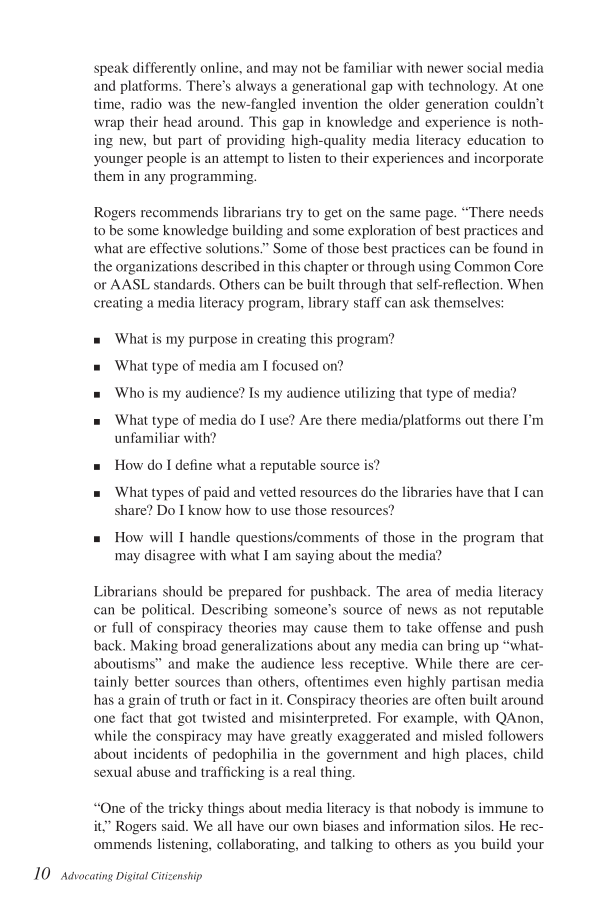10 Advocating Digital Citizenship speak differently online, and may not be familiar with newer social media and platforms. There’s always a generational gap with technology. At one time, radio was the new-fangled invention the older generation couldn’t wrap their head around. This gap in knowledge and experience is noth- ing new, but part of providing high-quality media literacy education to younger people is an attempt to listen to their experiences and incorporate them in any programming. Rogers recommends librarians try to get on the same page. “There needs to be some knowledge building and some exploration of best practices and what are effective solutions.” Some of those best practices can be found in the organizations described in this chapter or through using Common Core or AASL standards. Others can be built through that self-reflection. When creating a media literacy program, library staff can ask themselves: ■ What is my purpose in creating this program? ■ What type of media am I focused on? ■ Who is my audience? Is my audience utilizing that type of media? ■ What type of media do I use? Are there media/platforms out there I’m unfamiliar with? ■ How do I define what a reputable source is? ■ What types of paid and vetted resources do the libraries have that I can share? Do I know how to use those resources? ■ How will I handle questions/comments of those in the program that may disagree with what I am saying about the media? Librarians should be prepared for pushback. The area of media literacy can be political. Describing someone’s source of news as not reputable or full of conspiracy theories may cause them to take offense and push back. Making broad generalizations about any media can bring up “what- aboutisms” and make the audience less receptive. While there are cer- tainly better sources than others, oftentimes even highly partisan media has a grain of truth or fact in it. Conspiracy theories are often built around one fact that got twisted and misinterpreted. For example, with QAnon, while the conspiracy may have greatly exaggerated and misled followers about incidents of pedophilia in the government and high places, child sexual abuse and trafficking is a real thing. “One of the tricky things about media literacy is that nobody is immune to it,” Rogers said. We all have our own biases and information silos. He rec- ommends listening, collaborating, and talking to others as you build your
Document Details My Account Print multiple pages
Print
You have printed 0 times in the last 24 hours.
Your print count will reset on at .
You may print 0 more time(s) before then.
You may print a maximum of 0 pages at a time.

































































































































































































